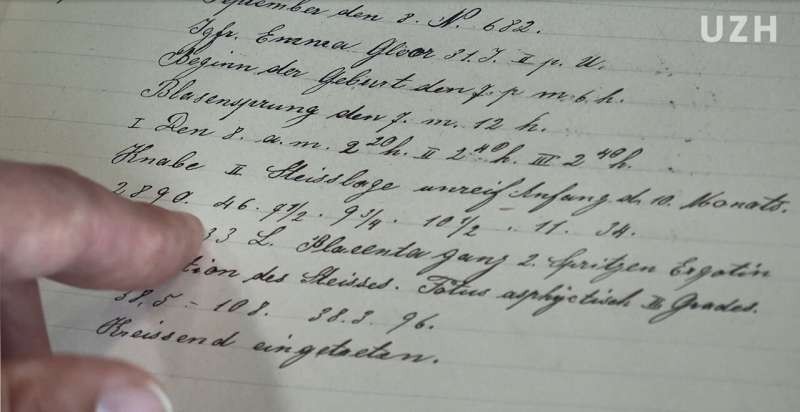This article has been reviewed according to Science X's editorial process and policies. Editors have highlighted the following attributes while ensuring the content's credibility:
fact-checked
peer-reviewed publication
trusted source
proofread
Study uncovers impact of 1918 Spanish flu pandemic on infant health

In the wake of the 1918/1919 "Spanish flu" influenza pandemic, the probability of low birth weight and stillbirth increased among women in Switzerland, according to a new study published in the open-access journal PLOS ONE, by Kaspar Staub of the University of Zurich, Switzerland, and colleagues.
Impaired neonatal health is an ongoing public health concern worldwide. Understanding determinants that impede normal fetal and infant development and growth is crucial for ameliorating neonatal health overall. In the new study, the researchers analyzed data on mothers and neonates from the Bern Maternity Hospital from 1880 to 1900 and from 1914 to 1922.
Overall, the rate of preterm births and stillbirths decreased between the first dataset and the second. However, the study found that the incidence of low birth weight was significantly increased in 1918 (OR 1.49, 95%CI 1.00–2.23) and in 1919 (OR 1.55, 95%CI 1.02–2.36), the years coinciding with the Spanish flu.
Additionally, mothers heavily exposed to the influenza pandemic during pregnancy—based on the dates of their pregnancy and infection rates at the time—had a higher risk of stillbirth (OR 2.27, 95%CI 1.32–3.90). The data on influenza infection during pregnancy were too imprecise in the dataset to be conclusive at the individual level.
The authors conclude that factors influencing neonatal health are multifactorial, but there is likely some consistency across pandemics, with similar patterns of increased stillbirth and low birth weight seen for pregnancies exposed to both the 1918 pandemic and COVID-19.
The authors add, "Pandemics are increasingly reported to negatively influence pregnancy outcomes. Our study is another example showing that the greatest pandemic of the last century was associated with higher risks of stillbirths and low birthweight. This urges us to better prepare for future pandemics to mitigate their effects on maternal and neonatal health."
More information: Salvisberg V et al, Health of neonates born in the maternity hospital in Bern, Switzerland, 1880–1900 and 1914–1922, PLoS ONE (2023). DOI: 10.1371/journal.pone.0289157. journals.plos.org/plosone/arti … journal.pone.0289157


















